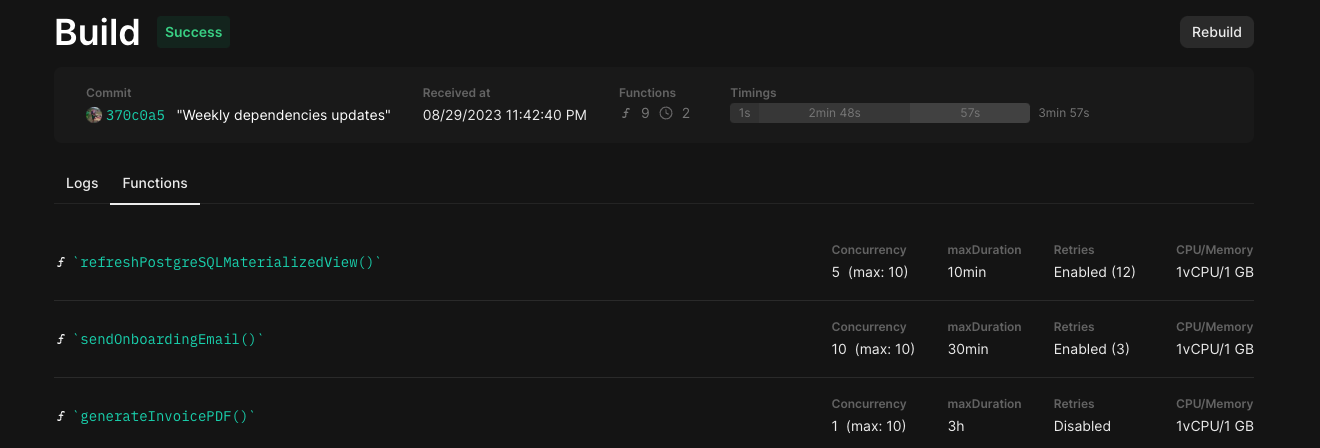Console updates: Timings and build manifests
We have improved the console user experience by adding more details for better build overview. Additionally, the console now offers deeper control over executions.
Filters
We have introduced new filters that make it easier to to narrow down the executions you are looking for. You can now filter executions by function name and error cause, along with the already existing status, schedule and metadata filters.

For example, the error cause filter is the fastest way to display only the executions that have exceeded the maximum memory limit or time duration you have defined in your function.
What's in my build?
The build process for Defer may seem like too much magic. That's why we have added the "Functions" tab on the build view.

The "Functions" tab provides a list of available functions on the build along with their configurations, such as the number of vCPUs, amount of memory, retry strategy, max duration, and concurrency limit.
Timings
Small changes can make a big difference! Some of you have asked for a more comprehensive way to view the execution timeline in order to better respond to questions like:
- How long has my execution been queued?
- How long is the cold start?
- How long has the execution run?
We have added a timings bar to the execution view that provides precise answers to the question above!

Cancel and Abort executions
New controls over your executions! Previously you could only rerun a completed execution from the console. Now, you can cancel queued executions, and abort running ones.
First, it is now possible to cancel an execution before it begins. Since the execution has not started, we can preempt it, making the cancellation process safe. Cancelling an execution is a synchronous operation, which means you will receive the result of the operation immediately.
Last but not least, the ability to abort a running execution is inherently unsafe as it is impossible to preempt what the execution is currently doing. That's why we decided to not abort by default and give you the responsibility of making this choice. Canceling executions is an asynchronous operation. In most cases, it takes less than a second, but in some contexts, it can take longer. Once a request to abort an execution has been made, it is not possible to revoke the request.
In our point of view, it is important to differentiate the two, and that's why we decided to take the awareness of our scheduler to the next level.
Related articles
Scheduling features are now available locally
Most of Defer Scheduler's features are now available locally for a smoother experience.
Advanced Scheduling with the Defer public API v2
Our Scheduler is now directly accessible for advanced use cases such as building a configurable notifications system, create batches of executions or user configurable worflows.
Builder updates: Git submodule and PNPM support
Explore our latest features, including TypeScript 5.x compatibility, PNPM integration, Yarn Plug'n'Play compatibility and Git submodule.